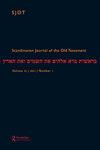Literary Grammar: The Grammaticalization of the Hebrew Wayyiqṭol in Typological Comparison with the Classical Japanese Kakari-Musubi, the Old Irish Dependent Conjugation, and the Tocharian Gendered 1st Person Singular Pronoun
IF 0.1
3区 哲学
0 RELIGION
引用次数: 0
Abstract
ABSTRACT In this article, the grammaticalization and narrative use of the Hebrew wayyiqṭol form is discussed in typological comparison with three phenomena from non-Semitic (and, indeed, non-Afro-Asiatic) languages: the so-called Kakari-musubi of Classical Japanese, the dependent conjugation of Old Irish, and the masculine/feminine distinction of the first person singular pronoun of East Tocharian. These comparisons are used to illustrate relations between particles and forms in grammaticalization, the rise of particleinduced morphological variation, and the social role of grammaticalization phenomena, thus providing new clues for the understanding of the rise of the wayyiqṭol as a grammaticalized form going back to the social situation of telling epic, narrative stories.文学语法:希伯来语Wayyiq的语法化ṭol与古典日语KakariMusubi、古爱尔兰从属共轭和托查里亚语第一人称单数代词的类型学比较
摘要在这篇文章中,希伯来语wayyiq的语法化和叙事使用ṭol形式在类型学上与非犹太主义(事实上,非亚非)语言的三种现象进行了比较:古典日语中所谓的Kakari musubi,古爱尔兰语的从属变位,以及东托查里亚语第一人称单数代词的阳性/阴性区分。这些比较用于说明语法化中粒子和形式之间的关系,粒子引起的形态变异的兴起,以及语法化现象的社会作用,从而为理解wayyiq的兴起提供了新的线索ṭol作为一种语法化的形式,可以追溯到讲述史诗、叙事故事的社会情境。
本文章由计算机程序翻译,如有差异,请以英文原文为准。
求助全文
约1分钟内获得全文
求助全文

 求助内容:
求助内容: 应助结果提醒方式:
应助结果提醒方式:


